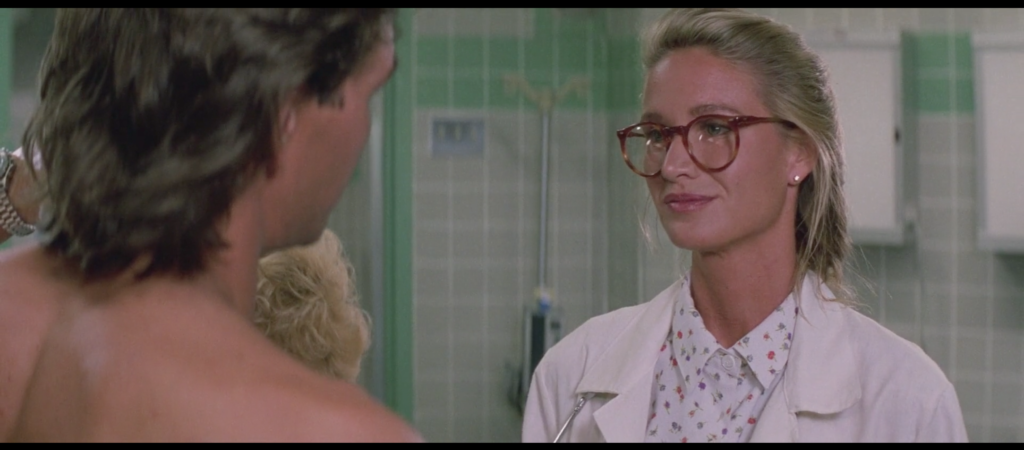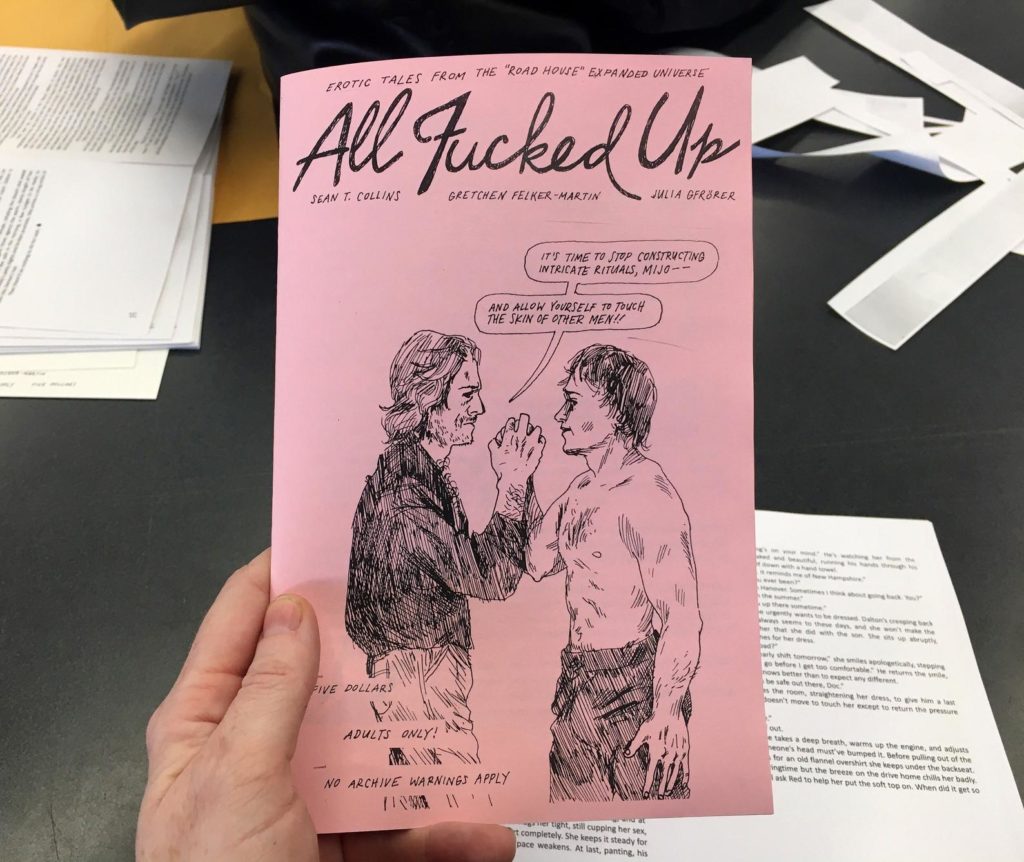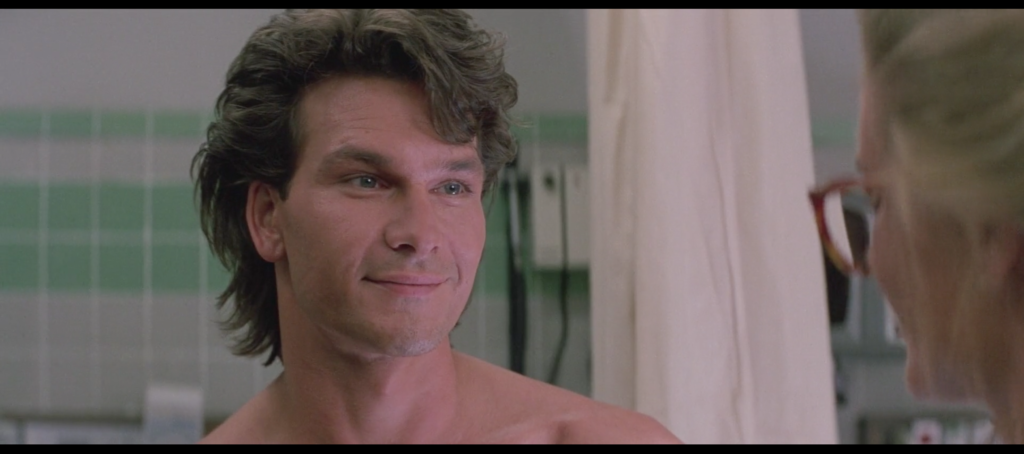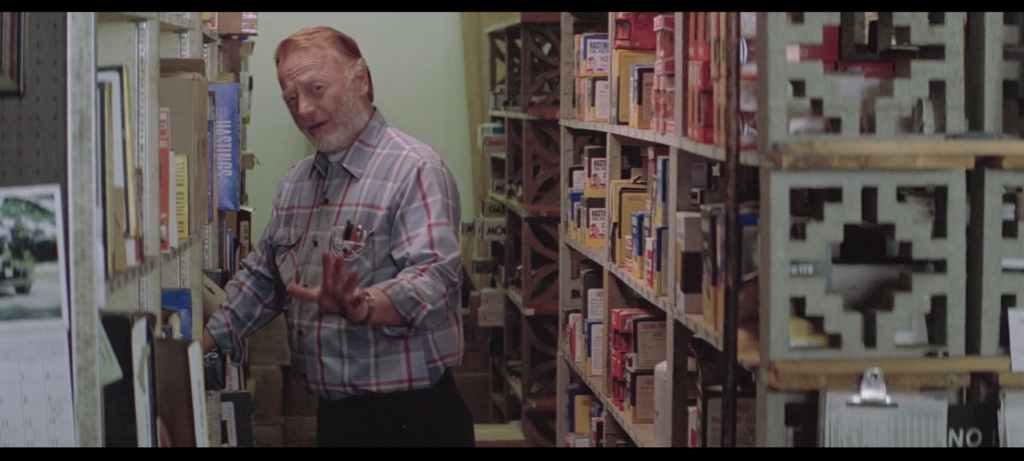
“You’re a bouncer.”
“Mmhm. Double Deuce.”
“Nice place. They send a lot of business my way.”
“I’m hoping to change that.”
“All by yourself?”
We get our first closeup of Dr. Elizabeth Clay on that last line of dialogue—”All by yourself?” Her smile at that moment is kind, but it’s the kindness of a skeptic trying to be polite with their skepticism. The Doc doesn’t believe Dalton will clean up the Double Deuce all by himself, though not because of anything Dalton has or has not done. She doesn’t believe anything worth doing can be done by oneself.
Think of the several times she tries to take Dalton down a peg. She does it when he talks about his job during their first date: “Somebody has to do it….Might as well be you.” Her doubt drips off every word, and while she’s quick with a rhetorical napkin, she can’t control all the spillage. What makes Dalton so special? In this regard, nothing that she can see.
Think of when she confronts Dalton about his escalating war with Wesley. “You don’t know him,” she warns Dalton; the implication is that he needs the knowledge she can impart. It has to be a team effort or it’s doomed to failure. Think of how she continues: “Who’s this for, anyway? Are you doing it for them? I don’t think so. You think you’re gonna save these people from Wesley? Well who’s gonna save them from you?” She shrieks that last line, because it gets to the heart of the issue here: Dalton’s messianism has no currency in her world. A doctor is always part of a team, and no doctor saves a life singlehandedly. Again, what makes Dalton so special? In this regard, still nothing.
This is what will make Dr. Elizabeth Clay the ideal mate for James Dalton as their lives continue after the closing credits roll. She will temper his idealism with pragmatism, leaven his savior complex with the value of teamwork, of solidarity between the likeminded, of delegation and deliberation.
The beauty of it is that unlike Brad Wesley, Dalton is a person capable of listening and learning. Certainly Doc is attracted to fixer-uppers or she’d never have married Wesley in the first place, though given their age difference there were obviously other dynamics at work. (Elizabeth is an orphan, for instance, and as Wesley’s boys can attest he’s a dark father figure.) And Dalton is a learner, a seeker. His degree from NYU shows he’s searching for answers, and despite having boiled down his knowledge into three simple rules there’s nothing to suggest he’s not open to learning more. Indeed, it’s precisely when he gets his back up and refuses to listen to Doc that things start going poorly for him. We’re meant to see that as anomalous; the real Dalton, however much pressure he puts on himself to “never lose,” listens.
And what does Dalton offer the doctor, besides a beautiful smile, remarkable hair, a bod that won’t quit, and a teaching opportunity? The chance to step outside herself and experience a side of life she’d kept at arms’ length. The Double Deuce sent a lot of business her way? Well, why not learn why? What drives a man to commit to bodily stopping trouble? What kind of mind expands that remit to an entire town? She can learn at her leisure even while tempering Dalton’s hard edges, while he does the same for her.
It’s a beautiful relationship when you really look at it. Two people, so different in so many ways, but a lock and a key are very different too. It’s the difference that makes it work.




